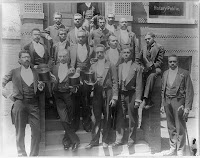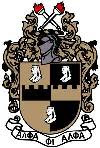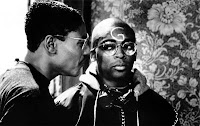"Darkness cannot drive out darkness; only light can do that. Hate cannot drive out hate; only love can do that." -Martin Luther King, Jr.
"If you see in any given situation only what everybody else can see, you can be said to be so much a representative of your culture that you are a victim of it. -S.I. Hayakawa
Faith is the door and Love is the Key!
Thank you for stopping by to take a peek into the world of zawaiiconcepts. Originally the name zawaii was formed from 'zawadi' (which means small gifts in swahili) a name describing the intent of my company as well as myself. But with the slip of the (i) replacing the (d) in haste while writing the name in 2006, 'zawadi' evolved, describing to me the last (z) place on earth that's the physical definition of peace off the mainland . Hawaii, with it's relaxing landscape seemed fitting.
These blog posts will share my personal view points on Life, Music, Sports, Fashion, Love, Sex, Religion, Poetry, People, Places and Things. My past includes poet, student, friend and humanist. Being from the South has given me a unique perspective on life as well as the world and these blog posts will serve as my cyber muse if you will. lol
The handle "Valentine The Black Hole" is a combination of the name of a mafia crime boss with a galactic planet or event (per E.BADU). I am here and this is my voice. -love
Tuesday, December 20, 2011
The Influence of the Divine Nine
Many of my adolescent years were spent discussing, planning and researching Historically Black College Fraternities that I almost feel like a professor on the subject. My world as a young impressionable adult was centered on these organizations as well as the colleges and universities that housed them. My youth was filled with questions about what frat was the coolest and which girls were the sexiest according to the stereotypes of each group. My view on women at the time was formed by the attitudes I picked up from these fraternities and led to the same sexist attitudes that were sometimes acted out as well. I 'pledged' a High School fraternity which was founded in the turbulent civil rights struggle of the 1960's in racially charged Birmingham, Alabama. The bonds of this group were so strong that brothers still today draw upon its rituals, secrets and memories shared. But this was supposed to be a prelude to the 'real' fraternal bonds of the 'Divine Nine' that awaited in college.
There is a renewed interest in the practice of hazing recently
due to the death of a young person at Florida A&M University initiating in its marching band program. Hazing is a term used to describe various ritual and other activities involving harassment, abuse or humiliation used as a way of initiating a person into a group. Sadly this activity is common place inside the culture. I remember heavily debated discussions on which frat pledged the hardest and exactly what was involved. Paddling, rough housing and various acts of humiliation, some physical and others mental were the law and was to be expected if you wanted to be a 'real' brother in the frat.
Throughout my journey I learned various poems and principles but on many occasions I've stopped to question myself on those very principles that made such a strong impression on me as a teenager. How ironic that I did not attend a HBCU (University of Montevallo) and I am NOT a member of one of these Historical Black College Fraternities today, but not for lack of trying. It seemed life wanted me to learn about the good as well as bad images of this culture to mold me into the man that I am today. They say you can't talk about something unless you've been through it, well I've learned enough to share my knowledge on the subject, which has led me to ask:
What is the influence of the Divine Nine?
Beginning with the Prince Hall Freemasonry, there are many historically African American fraternal organizations. The organizations include members such as Dr. Martin Luther King, Jr., a member of Alpha Phi Alpha and Sigma Pi Phi; Jesse Jackson, a member of Omega Psi Phi; and Wilt Chamberlain, Phi Groove don't use Greek letters solely. The first and oldest successful African-American collegiate fraternity, Alpha Phi Alpha, was formally established as a fraternity at Cornell University in 1906, though it operated as a social study club in 1905. Precursors to Alpha Phi Alpha included Sigma Pi Phi (a non-collegiate fraternity), and
unsuccessful attempts such as Gamma Phi Fraternity at Wilberforce University (first campus recognition documented in 1923; a 1923 yearbook entry reported operation as early as 1905), Alpha Kappa Nu at Indiana University (formation attempted in 1903, but involved too few registrants to assure continuing organization), and Pi Gamma Omicron at Ohio State University (formation originally reported in the Chicago Defender in 1905; but organization failed to receive school recognition).
Through 1920, the eight organizations who made up the National Pan-Hellenic Council until 1996 would be formed. Black fraternities and sororities were based on existing fraternities and sororities but cultural additions were made including calls, open hand signs, and step shows; though social in nature, many African-American fraternal organizations were formed with an emphasis on public service and civil rights.
The Story of NPHC 'The Divine Nine'
One day, the Greek gods Brotherhood and Sisterhood realized that they were lonely in the world. They had given birth to various children, but all seemed to forsake their parents. So they decided to join together and create a new breed to fraternal children. Brotherhood was given the opportunity to create the first child. He decided to take something from the two hemispheres of the world. So he gathered some "old gold" from the sun and black from the night in Egypt. There he created his first born, Alpha Phi Alpha. He granted his son wisdom as a gift of love.
Seeing the child that Brotherhood had created, Sisterhood realized that APHIA should not be alone in the world. Sisterhood roamed the world, looking for entities that she could create her first daughter from. On her journey, she came upon a field of pink flowers surrounded by a fence of green ivy. She knew that these were what she wanted to create her daughter from. Taking the beauty from the flowers and the ivy, Sisterhood created her first daughter, Alpha Kappa Alpha. As a gift for her daughter, Sisterhood created a mirror for AKA not only to view her outward beauty but her inner beauty as well.
Seeing the greatness they had created separately, Brotherhood and Sisterhood decided that they would join together and give birth to the rest of their children. Their first union brought about the birth of their twin sons Kappa Alpha Psi and Omega Psi Phi. These twins from birth were opposites. For one, they were born in two different locations.
Kappa had obtained the beauty of his parents while Omega received the strength attributed to the parents. Though there was much conflict between the two personalities, Kappa and Omega expressed much love for each other. Brotherhood and Sisterhood decided to give their twin sons gifts as signs of their personalities. Kappa was given a cane created out of red and white revealing that his beauty only came through blood and sweat. They gave Omega a pair of boots of gold that shined with lightening where ever he stepped and a vest of purple as a sign of his royalty.
To Sisterhood’s delight, their next child was a girl who they called Delta Sigma Theta. Delta, like her older bother Omega, gained more of the strength attribute of her parents. Because of this, her parents gave Delta a red elephant with bright ivory tusks as a sign of her strength.
Shortly after the birth of their daughter Delta, Phi Beta Sigma was brought into this world. His birth occurred as the moon was in its crescent phase. So his parents gave Sigma the sign of the crescent moon. His peaceful nature was ascribed by the parents to the dove that sang the coming of his birth and would sing to him throughout the day.
Sigma’s greatest pride would come in the form of another sister, Zeta Phi Beta Sigma and Zeta developed a bound that was greater than any of the other siblings. Because of their close relationship, Brotherhood and Sisterhood decided to give their daughter a gift of a white cat as an expression of her peacefulness.
These proud parents would soon welcome their next and last daughter into their family. She was given the name Sigma Gamma Rho. She would have an association with her brother Kappa because of the sharing of their birth places. Due to a certain degree of elegance that Gamma Rho exuded, her parents gave her the gift of a well-groomed poodle to express this elegance.
The elite eight would come together to establish their own nation called the National Pan-Hellenic Council. The children of eight would become siblings of nine after a long period of time. The last child that Brotherhood and Sisterhood brought into the world would be their baby boy, Iota Phi Theta. To celebrate this addition, they created a centaur as a gift for their son. The other siblings were somewhat cautious of granting their brother citizenship, but finally did. Thus becoming known as the "Divine Nine."
The Greek gods looked down on all their children and say "Well done my children may your light sign in the East forever and may your glory never fade in the West. Never forget that you are all one and from one."
Pledging Black Greek Letter Organizations: Did You Cross the Burning Sands? Special Report: ‘Underground’ Pledging vs. ‘Membership Intake Process’ by Lawrence C. Ross Jr. author of the best-selling The Divine Nine: The History of African American Fraternities and Sororities. The Root October 18, 2009 at 10:23 PM
For most black fraternity and sorority members initiated before 1990, pledging is when they formed their first fraternal memories. The identical uniforms, marching across campus, reciting poems and history, fulfilling the whims of their big brothers and sisters—these pledging activities were all designed to create an experience through which the pledge would be bonded to their new organization for life. These organizations are an important, often integral, part of college life for thousands upon thousands of African-American college students at HBCUs and more mainstream campuses. These organizations do important community service—scholarship funds, operating food pantries, self-esteem and teen pregnancy programs—around the country, and sometimes, around the world.
The dark side of pledging, though—the way into these organizations—the physical and mental hazing that has maimed scores of college students for decades, in certain circles, continues still, even though it is outlawed in some states and is cause for suspension of membership in each of the nine largest black organizations. Over the last few decades, black Greek national organizations have shortened the pledge period from a year to a semester, and by the mid ‘80s, it was down to six to eight weeks. In theory, a shorter pledge period meant reduced risk for the pledge and reduced liability for the organization. It didn’t work.
After the death of Joel Harris, most of the Divine Nine black fraternities and sororities immediately declared a moratorium on pledging, and within a year, had dissolved pledging altogether, and replaced it with a new, highly controlled membership intake process (MIP). Initiation would take place over the course of only two weekends. But 20 years after Harris’ death and the “official” end to
pledging, a new illegal form of pledging not only exists, but thrives. It’s called “underground” pledging, and while the national organizations decry it as illegal and issue statements about trying to eradicate it, it’s clear that none of the black Greek organizations are close to a solution.
“Underground pledging really isn’t underground,” says Dr. Walter M. Kimbrough, president of Philander Smith University and author of Black Greek 101: The Culture, Customs, and Challenges of Black Fraternities and Sororities (Fairleigh Dickenson University Press, 2003). Dr. Kimbrough is also a member of Alpha Phi Alpha. “Everyone knows it’s happening, so maybe we should more accurately call it “low-key” pledging. Nothing has been successful in [terms of] stopping it, so I think the national organizations are trying to manage rather than eradicate it. We’re simply treating the acute cases, but aren’t looking for a cure.”
Nicknamed the Divine Nine–Alpha Phi Alpha Fraternity, Inc., Kappa Alpha Psi Fraternity, Inc., Omega Psi Phi Fraternity, Inc., Phi Beta Sigma Fraternity, Inc., Iota Phi Theta Fraternity, Inc., Alpha Kappa Alpha Sorority, Inc., Delta Sigma Theta Sorority, Inc., Zeta Phi Beta Sorority, Inc. and Sigma Gamma Rho Sorority, Inc.—were founded between 1906 and 1963, and have been at the forefront of the
most collegiate and post-collegiate African-American life for the past 100 years. Nikki Giovanni is a Delta. Michelle Obama accepted an honorary membership from AKA. Zora Neale Hurston was a Zeta. Tavis Smiley is a member of Kappa Alpha Psi, as is Congressman John Conyers Jr. The list of acclaimed, talented and successful members of the Divine Nine reads like a Who’s Who of African-American history.
There are incidents of hazing in Historically Black University marching bands also. December 2011, three Florida A&M band members were charged Monday in the beating of a woman during hazing rituals that became so severe that her thigh was broken, police said. The beatings came about three weeks before drum major Robert Champion was killed during a band trip to Orlando. Police say hazing also was involved.
Tallahassee police said that on Oct. 31 and Nov. 1, Bria Shante Hunter was beaten with fists and a metal ruler to initiate her into the "Red Dawg Order" – a band clique for students who come from Georgia.)
Tradition and fraternalism are great unifiers among the organizations. Whether it’s at a step show before thousands, conducting a community service project in the inner city or fellowshipping over drinks, black Greeks believe in creating bonds that move beyond friendship, and instead are centered around deeper ideals and principles like brotherhood and sisterhood. For many, the trials and tribulations around pledging are symbolic of the trials of life. And without an official pledge program, recent black Greeks continue to emulate that tradition by creating their own illegal process.
You don’t have to look far to find examples of the underground pledging culture on the Internet. Pledge Park, a social network for black Greeks, proclaims that those who “pledged” will be able to handle their community, while those who “skated” won’t. On Facebook, a popular black Greek group called “Paper Burns, but Sands Last Forever” thrives. Paper refers to initiates who don’t pledge underground and instead are initiated via MIP (hence signing a piece of paper), versus those who
pledge and cross the “burning sands.” Those who pledge underground don’t think they’re perverting their organizations rules and bylaws, but instead, believe that they’re upholding a tradition.
Anjan Basu, a 33-year-old English graduate student at North Carolina A&T, pledged Alpha Phi Alpha on an underground line for eight weeks in 1999. Last March, Basu wrote “I Love Hazing—Can We Bring It Back?” a controversial editorial for Black College Wire that advocated for a return to pledging as an official policy.
“I feel that in the development of young men, which is what the undergraduate fraternity is supposed to be aligned with, a degree of physicality is called for,” Basu wrote. “And regardless of political correctness, sometimes a young man’s convictions can only be tested through action, and consequently, physical violence.”
Subscribe to:
Post Comments (Atom)














No comments:
Post a Comment